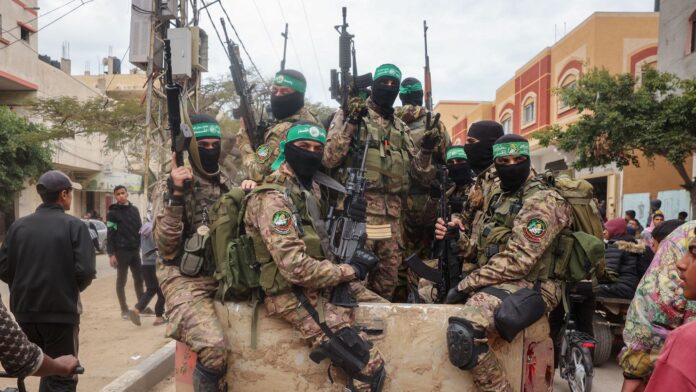Conditions for aid access
Hamas announced that it will permit the International Committee of the Red Cross to bring food and care to Israeli captives in Gaza if Israel agrees to open safe paths at all times and halts aerial attacks when aid convoys move.
A spokesman for the Al-Qassam Brigades said this move aims to protect the hostages during deliveries and to meet a basic humanitarian need. He noted that the captives will eat the same rations that fighters and local civilians receive, and he stressed that no one will get special treatment under current siege conditions.
Global reaction to hostage videos

This announcement followed the release of videos showing a 24-year-old man named Evyatar David in a frail state and digging a hole he called his grave. Those images shocked many governments. Officials in Paris, Berlin, London and Washington condemned the footage and urged immediate steps to save lives.
EU foreign policy chief Kaja Kallas said the images expose a brutal reality that demands action, and she called on all sides to respect humanitarian rules.
Israeli response and appeals
Prime Minister Benjamin Netanyahu spoke with the Red Cross regional head to ask for food drops and medical care for the captives. His office said he pressed the organization to secure quick relief for those still alive in Gaza.
Israeli authorities say about fifty hostages remain, and they believe only around twenty of them survive in harsh conditions. Families of the taken have been left without news for more than six hundred days, and they demand clarity on the fate of their loved ones.
Wider humanitarian toll

Meanwhile, Gaza’s health ministry reports that six more people have died from malnutrition in just one day, bringing total deaths from hunger to seventeen-five since the conflict began.
Among those lost are ninety-three children. Relief missions from Belgium have shipped supplies into Gaza, and France has begun airdropping forty tons of food and water to the most needy areas. Yet narrow corridors and ongoing strikes keep many from getting the help they need.
Analysis: Risks and challenges
Bringing aid into a war zone always involves risk, and Hamas’s conditions could stall deliveries if Israel fears for its own supply lines. At the same time, families of hostages see this offer as a rare sign of hope, even if it comes with tough demands. Aid groups now face pressure to negotiate safe corridors while urging all sides to keep roads open. If talks break down, lives may hang in the balance.
Personal analysis
This move by Hamas may mark a small step toward easing suffering, but it also shows how deeply politics shapes relief work. When fighters control routes and a state controls the skies, patience and diplomacy must guide any effort to feed the hungry and treat the sick. Both sides will have to trust messengers who often work under threat, and they will need real guarantees to turn promises into real aid.
Sources: Reuters.com

